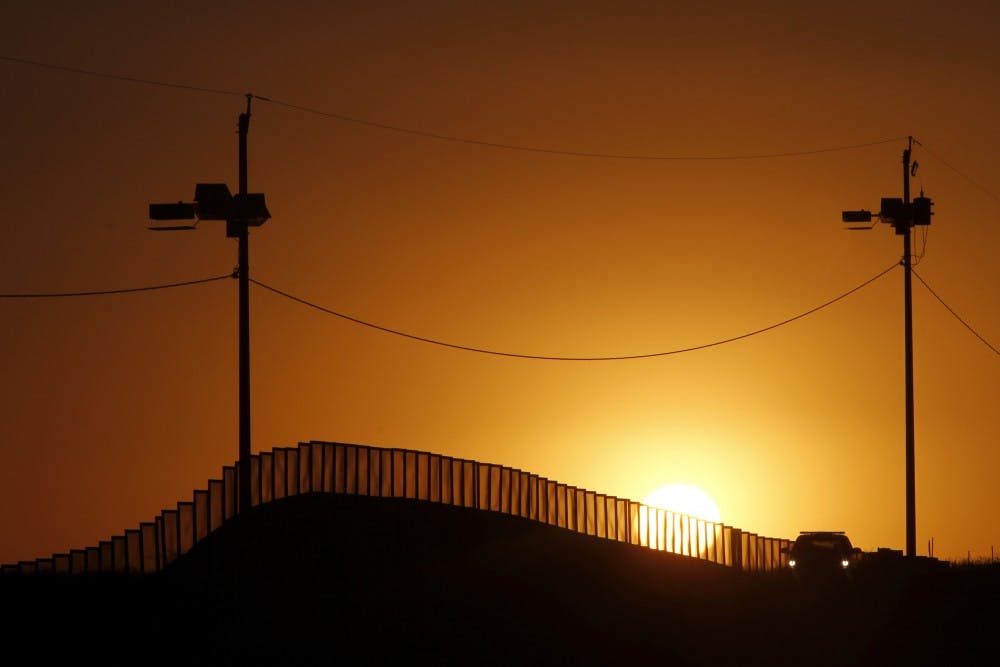Since Trump announced his candidacy in 2015, he has thrived off the promise to “Make America Great Again,” and one of his favorite solutions to doing that was proposing a border wall. However, building a wall may have more consequences than Americans think, especially for Arizona.
There is already a 650-mile fence on the border of Mexico and Arizona. This barrier was built under the Secure Fence Act of 2006, signed into law by former President George W. Bush with a promise to “make our borders more secure.”
Despite this, President Trump wants to build a huge wall, not a fence. The wall itself would be roughly 1,250 miles long by the time 2020 rolls around.
Things like this cost a lot of money, and although Trump said Mexico would pay to build the wall, House Speaker Paul Ryan has admitted that Congress would foot the $12 to $15 billion bill. Some reports even claim it may cost up to $21.6 billion. This means that the American taxpayers, including you, will be paying for it.
But don’t fret, President Trump has promised multiple times that eventually Mexico will reimburse us - even as the Mexican president has reiterated that his country will not pay a cent.
Another way to fund the construction of the border wall is the 20 percent tax President Trump plans on imposing on Mexican imports. This tax would mean Arizona residents and other Mexican-import consumers are going to end up paying skyrocketed prices for goods such as avocados, tomatoes and tequila.
However, the consequences we would face from a lengthened border wall would extend beyond economics.
In particular, the geological side effects to the construction of a massive, unnatural wall could be catastrophic for wildlife. This barrier can and will divide up species, creating smaller genetic pools, which make creatures more susceptible to diseases.
Just a few of the species affected would be the endangered North American jaguar, cougars, the ocelot and the desert bighorn sheep. The shorter and smaller current border wall has already affected animals such as the low-flying pygmy owl and the bobcat.
Beyond the physical wall, the increased security that will surround Trump’s wall will disrupt nearby ecosystems. Helicopters, large spotlights and increased human activity are just a few of the additional dangers to wildlife down south.
Further, the fact that the border isn’t just flat desert land all the way through will complicate its construction.
“(Trump’s wall) will be a disaster because home ranges, watersheds and rivers don’t have walls between them. Movement of organisms as well as movement of water would be very strongly disrupted by it," said Nancy Grimm, an ecologist and professor at ASU. "Part of our border of Mexico is a river. I don’t know how you’re going to build that wall in that river.”
In addition to affecting wildlife, the wall may also affect ASU students directly. ASU has been committed to the education of DACA and DREAMer students for years. The implementation of this massive border wall emphasizes divisiveness, something directly contrasting the goals and expectations of ASU as an institution.
President Trump’s racist remarks that Mexican immigrants are “...bringing drugs. They're bringing crime. They're rapists,” are false and unrepresentative. These remarks ignore the reality of countless students who study, work hard and are trying to make a brighter future for themselves and their families, just as the rest of us are here at ASU.
If what has been occurring throughout the election and the new presidency specifically has been affecting you, ASU offers counseling to students who need to be heard and comforted during this time of uncertainty.
At the end of the day, we need to show kindness and compassion to one another, regardless of which side of the border we were born on. We need to fight for the rights of our peers and for the rights of wildlife. We can continue to protest the construction of the wall and make our voices heard.
Reach the reporter at simone.rossi@asu.edu or follow @simonekathleen9 on Twitter.
Editor’s note: The opinions presented in this column are the author’s and do not imply any endorsement from The State Press or its editors.
Want to join the conversation? Send an email to opiniondesk.statepress@gmail.com. Keep letters under 300 words and be sure to include your university affiliation. Anonymity will not be granted.
Like The State Press on Facebook and follow @statepress on Twitter.




